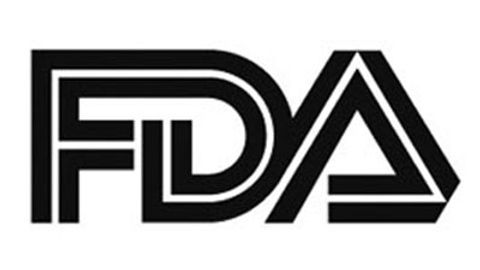FDA Grants Priority Review to Crizotinib in Relapsed/Refractory ALK-Positive ALCL
The FDA accepted a supplemental New Drug Application for crizotinib and granted it a Priority Review as treatment of pediatric patients with relapsed or refractory systemic anaplastic large cell lymphoma that is positive for an ALK alteration.

The FDA accepted a supplemental New Drug Application for crizotinib (Xalkori) and granted it a Priority Review as treatment of pediatric patients with relapsed or refractory systemic anaplastic large cell lymphoma (ALCL) that is positive for an ALK alteration.1
In May 2018, crizotinib was granted Breakthrough Therapy designation for the same indication. The agent may fill in a treatment gap in this setting, if approved, becoming the first biomarker-driven therapy for relapsed/refractory ALK-positive ALCL. The FDA granted crizotinib a Prescription Drug User Fee Act (PDUFA) target action date of January 2021.
“Despite high survival rates for children with ALK-positive anaplastic large cell lymphoma, many will relapse, requiring novel treatment approaches,” said Chris Boshoff, MD, PhD, chief development officer, Oncology, Pfizer Global Product Development, in a statement. “Given Xalkori’s proven efficacy in ALK-positive lung cancer and activity seen in clinical trials investigating relapsed or refractory ALK- and ROS1-positive anaplastic large cell lymphoma, if approved, Xalkori’s could represent an important step toward improving outcomes for children with this type of cancer.”
The NDA for crizotinib was supported by data from the phase 1/2 ADVL0912 study (NCT00939770) as treatment of young patients with relapsed/refractory solid tumors or ALCL with ALK alterations or MET mutations or amplifications, as well as from the phase 1B A8081013 study (NCT01121588) of crizotinib in patients with ALK-positive malignant neoplasms, both of which assessed the use of crizotinib in children with relapsed/refractory ALCL.
In the completed ADVL0912 study, the small molecule inhibitor demonstrated antitumor activity in those with ALK-translocated ALCL as well as in patients with myofibroblastic tumors.2
A total of 79 patients were included in the study in which investigators assessed the maximum tolerated dose of crizotinib, the number of patients with toxicities, and pharmacokinetics as coprimary end points. The secondary end points were the number of patients who responded to treatment with crizotinib and the number of patients with minimum residual disease.
Overall, 280 mg/m2 twice daily was identified as the maximum tolerated dose of crizotinib after it was well tolerated during phase 1 of the study. In terms of the safety end point, patients experienced grade 4 adverse events (AEs) during cycle 1, which included neutropenia (n = 2), and liver enzyme elevation (n = 1) and reported grade 3 AEs included 2 cases of lymphopenia and 8 of neutropenia. It was also noted that crizotinib had a mean steady state peak concentration of 630 ng/mL with a 4-hour (range, 1-6) time to reach the peak.
Fourteen patients out of 79 had an objective response to treatment, which included 9 complete responses (CRs) and 5 partial responses (PRs). Among the subgroup of patients with ALK-positive ALCL, antitumor activity was observed in 8 out of the 9 patients. Notably, clinical activity was also demonstrated in the neuroblastoma subgroup, in the inflammatory myofibroblastic tumor group, as well as in 1 patient with non–small cell lung cancer.
Based on findings from the phase 1 dose-escalation trial, it was suggested that patients with relapsed/refractory ALCL can derive benefit from crizotinib but use of the agent in patients with the other tumors assessed required further evaluation.
In the A8081013 study, antitumor activity was also demonstrated with crizotinib as treatment of patients with ALK-rearranged hematologic tumors.3
Fourteen of the 15 patients enrolled in the study had ALK-positive ALCL; there was also 1 patient with ALK-positive diffuse large B-cell lymphoma. The objective response rate observed was 60% with 9 patients in the study achieving a CR, and 4 achieving a PR. There was also 1 patient with stable disease for more than 12 months. The clinical benefit rate in the study was 67%.
All patients in the study experienced AEs, which were mainly grade 1 and 2 in severity. The most common AEs were vomiting (47%), visual impairment (40%), asthenia (27%), cough (27%), and neutropenia (27%). Notably, grade 3 vomiting and neutropenia were observed. Additionally, there were 4 patients with grade 4 events, including abdominal pain, increased creatinine phosphokinase, lymphopenia, and multi-organ failure. A grade 5 event of central nervous system hemorrhage was also reported.
In addition to the NDA submitted to the FDA, the application is also being reviewed by the European Medicines Agency.
References:
1. FDA accepts supplemental new drug application for Pfizer’s Xalkori® (crizotinib) for the treatment of pediatric alk-positive anaplastic large cell lymphoma. News release. Pfizer, Inc. September 23, 2020. Accessed September 23, 2020. https://bit.ly/3hX0LFS
2. Mossé YP, Lim MS, Voss SD, et al. Safety and activity of crizotinib for paediatric patients with refractory solid tumours or anaplastic large-cell lymphoma: a Children's Oncology Group phase 1 consortium study. Lancet Oncol. 2013;14(6):472-480. doi:10.1016/S1470-2045(13)70095-0
3. Gambacorti-Passerini C, Horibe K, Braiteh F, et al. Safety and clinical activity of crizotinib in patients with alk-rearranged hematologic malignancies. Blood. 2013;122(21);4342. doi:10.1182/blood.V122.21.4342.4342
Examining the Non-Hodgkin Lymphoma Treatment Paradigm
July 15th 2022In season 3, episode 6 of Targeted Talks, Yazan Samhouri, MD, discusses the exciting new agents for the treatment of non-Hodgkin lymphoma, the clinical trials that support their use, and hopes for the future of treatment.
Listen
Later-Line CD19 and Bispecific Therapies Considered After CAR T
October 1st 2024During a Case-Based Roundtable® event, Christopher Maisel, MD, discussed third- and fourth-line therapy and barriers to bispecific therapy use in diffuse large B-cell lymphoma in the second article of a 2-part series.
Read More